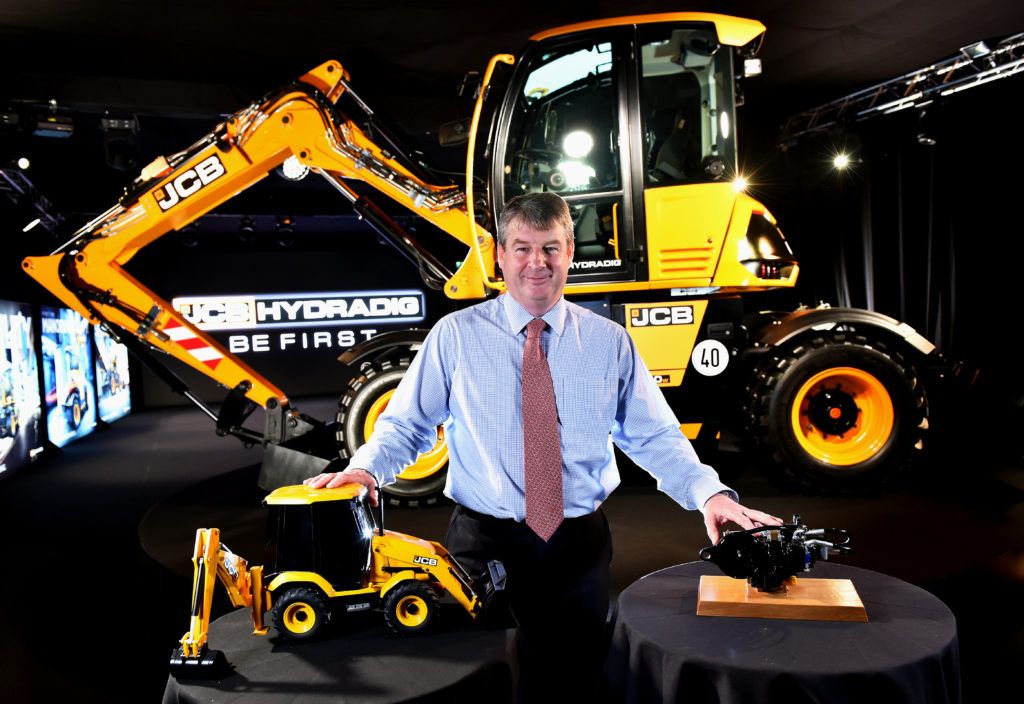Tim Burnhope, JCB’s Group director, special projects explores how the latest developments in hydrogen combustion engine technology are paving the way for a zero-carbon future for the off-highway sector
 This year has got off to a very positive start with much to celebrate for JCB and its hydrogen engine programme. The JCB hydrogen engine recently got the go ahead to be used commercially in 11 European countries which is a real watershed moment for the project. JCB is also the first construction equipment company to develop a fully working combustion engine fuelled by hydrogen and, as a result, is the first to have this stamp of approval from authorities. In a nutshell, JCB’s hydrogen has been approved as complaint with Stage V regulations governing the use of plant in our industry. This achievement concludes a remarkable 12 months.
This year has got off to a very positive start with much to celebrate for JCB and its hydrogen engine programme. The JCB hydrogen engine recently got the go ahead to be used commercially in 11 European countries which is a real watershed moment for the project. JCB is also the first construction equipment company to develop a fully working combustion engine fuelled by hydrogen and, as a result, is the first to have this stamp of approval from authorities. In a nutshell, JCB’s hydrogen has been approved as complaint with Stage V regulations governing the use of plant in our industry. This achievement concludes a remarkable 12 months.
“We have demonstrated that hydrogen technology can be produced, delivered and used on sites”
2024 began with the UK Government’s call for evidence into decarbonising non-road mobile machinery (NRMM), which includes machines used in construction, agriculture, and logistics, among other sectors. JCB submitted more than 300 pages of factual evidence, highlighting a decade of work on machine efficiency, electrification, hydrogen fuel cells, and more recently, hydrogen engines.
Hydrogen is on everyone’s radar
In 2024, JCB completed over 50,000 hours of hydrogen engine testing, both in machines and engine test cells. This remarkable feat was delivered by a dedicated team utilising a fleet of over 30 machines. Additionally, we completed over 25,000km of on-road testing at the request of the UK Government to prove that hydrogen-powered machines are safe for use on British roads. The hard work is paying off with high-level acknowledgment by two government documents.
Firstly, the Hydrogen Internal Combustion Engine (H2ICE) Working Group paper strongly recommended that H2ICE be accepted as an appropriate net-zero emissions technology for rapid decarbonisation of the NRMM sector, with the co-benefits of significantly improved air quality. Secondly, the UK Government’s “Hydrogen Strategy Update to the Market December 2024” also supported the use of hydrogen in internal combustion engines as a decarbonisation option for off-road machinery. Five years ago, hydrogen combustion engine technology was not even on the radar, and now it is being approved and endorsed by governments. This is truly remarkable, but it is only the beginning.
Putting plans into action
It is not just about what is written on paper; it is about real machines working on real job sites, making a real difference to the industry. Over the past three months, JCB has had hydrogen engine-powered machines on trial with customers, proving that hydrogen works and is effective in our industry. We have demonstrated that hydrogen technology can be produced, delivered and used on sites.
We are accustomed to expecting the latest technology to radically change the way we do things – but when it comes to net zero, the goal is to allow us to keep doing what we’re doing, just in a zero-carbon way. This is the transformation our industry needs: one that is seamless, impactful, and essential for a sustainable future.
This article first appeared in the March issue of iVT




